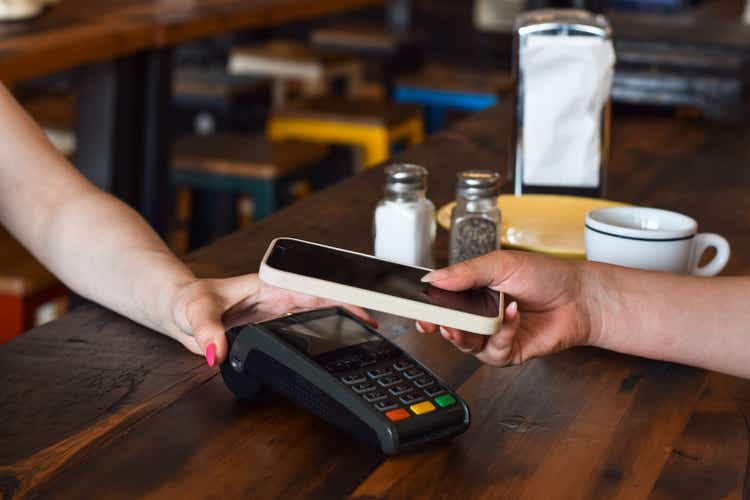
JulieAlexK
The European Commission has accepted commitments by Apple (NASDAQ:AAPL) to give access to the ‘tap and go’ technology on iPhones.
The agency has made commitments offered by Apple legally binding under the EU antitrust rules.
The Commission said that the commitments address its competition concerns related to Apple’s refusal to grant rivals access to a technology called Near-Field-Communication, or NFC, for contactless payments (‘tap and go’) with iPhones in stores.
Previously, only the company’s mobile wallet Apple Pay used to allow iPhone users to pay with their devices in stores and online.
“Today’s decision makes Apple’ commitments binding. It opens up competition in this crucial sector, by preventing Apple from excluding other mobile wallets from the iPhone’s ecosystem. From now on, competitors will be able to effectively compete with Apple Pay for mobile payments with the iPhone in shops,” said Margrethe Vestager, executive vice-president in charge of competition policy.
The EU antitrust watch noted that its preliminarily investigation found that Apple abused its dominant position by refusing to supply the NFC input on iOS to competing mobile wallet developers, while reserving such access only to Apple Pay.
In an effort to stave off EU antitrust scrutiny, Apple initially offered a 10-year commitment allowing third-party mobile wallets to access its payments chip on iPhones. The Commission had invited comments, starting in January, on the commitments offered by Apple.
The Commission said it market tested Apple’s commitments and following the results of the test, Apple amended the initial proposal and committed:
To extend the possibility to initiate payments with Host Card Emulation, or HCE, payment apps at other industry-certified terminals, such as merchant phones or devices used as terminal.
Apple also vowed to acknowledge that HCE developers are not prevented from combining the HCE payment function with other NFC functionalities. The company also pledge to remove the requirement for developers to have a license as a Payment Service Provider, or PSP, or a deal with a PSP to access the NFC input.
In addition, the U.S. tech giant offered to allow NFC access for developers to pre-build payment apps for third party mobile wallet providers; and to enable developers to prompt users to easily set up their default payment app and redirect users to the default NFC settings page, among other commitments.
The agency said that the commitments will remain in force for 10 years and apply throughout the European Economic Area, or EEA.











